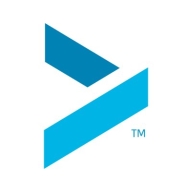

SonarQube Server and Cequence Security are competing products in the application security domain. Cequence Security has a stronger feature set, justifying its higher cost, while SonarQube Server is favored for its pricing and support.
Features: SonarQube Server provides comprehensive code analysis, identifies code vulnerabilities, and ensures code quality. Cequence Security offers application security features that detect and mitigate threats, providing a robust solution for organizations prioritizing security over code quality.
Ease of Deployment and Customer Service: SonarQube Server is known for straightforward deployment and quick implementation with robust support channels. Cequence Security is more complex in deployment, offering advanced protection features needing careful integration, and responsive customer service.
Pricing and ROI: SonarQube Server balances cost and features effectively, with a relatively low setup cost for organizations focused on code quality. Cequence Security requires a higher initial investment, valued for advanced security capabilities and comprehensive protection.
| Product | Market Share (%) |
|---|---|
| SonarQube Server (formerly SonarQube) | 19.3% |
| Cequence Security | 0.4% |
| Other | 80.3% |

| Company Size | Count |
|---|---|
| Small Business | 32 |
| Midsize Enterprise | 21 |
| Large Enterprise | 75 |
Cequence, a pioneer in API security and bot management, is the only solution that delivers Unified API Protection (UAP), uniting discovery, compliance, and protection across all internal, external, third-party APIs to defend organizations against attacks, business logic abuse, and fraud. Needing less than 15 minutes to onboard an API without requiring any instrumentation, SDK, or JavaScript integration, the flexible deployment model supports SaaS, on-premises, and hybrid installations. Cequence solutions scale to handle the most demanding government, Fortune and Global 500 organizations, securing more than 8 billion daily API interactions and protecting more than 3 billion user accounts.
The Cequence Unified API Protection (UAP) platform enables security teams to manage through the entire API protection lifecycle that includes support for discover, comply, and protect stages that defend against attackers and eliminates unknown and unmitigated API security risks. The Cequence UAP platform provides three integral components, API Spyder, API Sentinel, and API Spartan that target every stage of the API protection lifecycle, ensuring that customers have one platform to address all their API security issues.
API Spyder (Discover)
Cequence UAP starts with first understanding your API attack surface through API Spyder which discovers your external APIs across managed and unmanaged API infrastructure. This allows security teams to ensure that unmanaged APIs are brought under management to confirm they do not have security risks and have the proper API protection enabled. Once deployed, API Spyder provides a continuous mechanism to surface unmanaged shadow APIs that are newly implemented by internal departments but never notify the security team of their existence.
API Sentinel (Comply)
API Sentinel, a security posture management product enables security teams and development teams to work collaboratively to directly address surfaced security issues within your runtime APIs that could potentially lead to an API exploit. It can discover whether your APIs conform to Open API specifications, adhere to security and governance best practices, and test your pre-production APIs for vulnerabilities. API Sentinel lays the groundwork to ensure that you are fully aware of the risks inherent in your API applications and enables you to remediate critical security issues before they are exploited by an attacker.
Spartan (Protect)
Finally, API Spartan offers real-time detection and mitigation of automated threats and attacks, including those that are API-specific. Spartan is powered by an ML-based analytics engine that can determine in real time if application transactions are from malicious or legitimate end users. It can mitigate a wide variety of cyberattacks that include online fraud, business logic attacks, exploits, automated bot activity, and OWASP API Security Top 10 attacks.
SonarQube Server aids in enhancing code quality and security for development teams by providing extensive programming language support, customizable quality gates, and integration with CI/CD pipelines.
Designed for static code analysis, SonarQube Server assists development teams in identifying bugs and vulnerabilities, promoting coding standards, and reducing technical debt. It offers centralized management of code quality metrics through its dashboard while supporting integration with Jenkins for seamless project management. However, challenges in interface design, analysis time, and reporting need addressing. While SonarQube Server offers significant benefits, users call for enhanced plug-in diversity, better documentation, and smoother upgrades.
What are SonarQube Server's most important features?In industries like security organizations and enterprises, SonarQube Server is integrated into CI/CD pipelines to audit code and monitor coding standards. It assists in detecting security issues, ensuring compliance, and automating quality checks, helping businesses maintain high coding standards and improve development workflows.
We monitor all Application Security Tools reviews to prevent fraudulent reviews and keep review quality high. We do not post reviews by company employees or direct competitors. We validate each review for authenticity via cross-reference with LinkedIn, and personal follow-up with the reviewer when necessary.